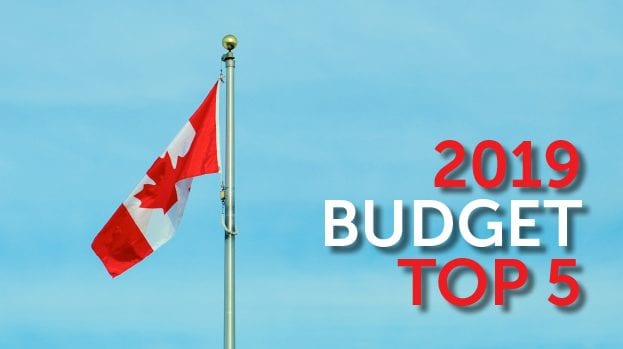First-time home buyers can now access up to $35,000 ($70,000 for a couple) from their RRSP under the Home Buyers’ Plan to purchase or build a home. The previous limit was $25,000. The limit increase applies to RRSP withdrawals made after March 19, 2019.
A new incentive for first-time home buyers was introduced and is expected to be operational by September 2019. The new program allows buyers to apply for a shared mortgage with the Canada Mortgage and Housing Corporation (CMHC) for an amount of up to 10% on the price of a new home and 5% for an existing home. The buyers would apply for the shared mortgage as they qualify for an insured mortgage with the CMHC. No payments are required to be made on the shared mortgage, and it is repaid when the house is sold. First-time home buyers with family income of $120,000 or lower can qualify for the plan. However, the insured and shared mortgages combined cannot exceed four times the annual household income.
Canadians aged 25-65 years old, with incomes between $10,000 and $147,667 (in 2019) can qualify for a refundable tax credit of up to $250 per year on eligible tuition and fees paid in the year. The unused part of the $250 tax credit can be used in a future year up to a maximum lifetime credit of $5,000. Eligible fees include tuition and related fees paid to Canadian institutions such as a university, college or other post-secondary educational institution. The tax credit can be claimed starting in 2020.
Access to the preferential tax rates on employee stock options will be limited to an annual amount of $200,000 for employees of large, long-established, mature companies. Amounts in excess of the annual cap will be taxed as ordinary income. This limit is not intended to apply to start-ups and rapidly growing Canadian businesses and is to apply on a go-forward basis and would not apply to options granted prior to March 19, 2019.
The budget proposes to provide an incentive to individuals of up to $5,000 towards the purchase of an electric battery or hydrogen fuel cell vehicle having a suggested retail price of $45,000 or less. Details to follow.
To encourage businesses to acquire zero-emission vehicles, the budget proposes a limited period to allow for the write-off of the entire cost of the vehicle in the year of purchase. This applies for vehicles purchased after March 31, 2019 with a gradual elimination of the measure after 2023.
A Canadian-controlled private corporation is entitled to an enhanced refundable SR&ED tax credit. The enhanced credit was reduced or eliminated if the company had taxable income in excess of $500,000 or had taxable capital in excess of $10M. For taxation years that end on or after March 19, 2019, the level of taxable income has been eliminated as a factor determining the enhanced credit.
Do not hesitate to contact our team for any specific questions relating to measures from the budget that impact you or your business.








